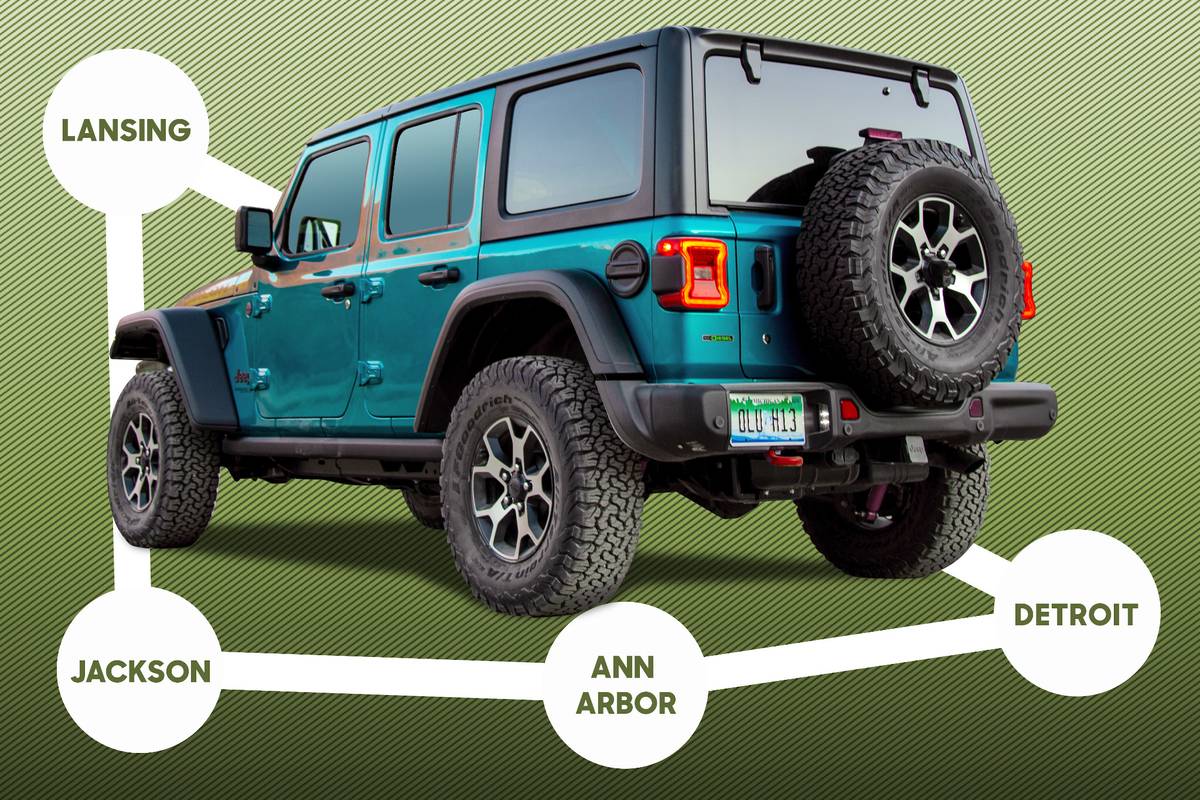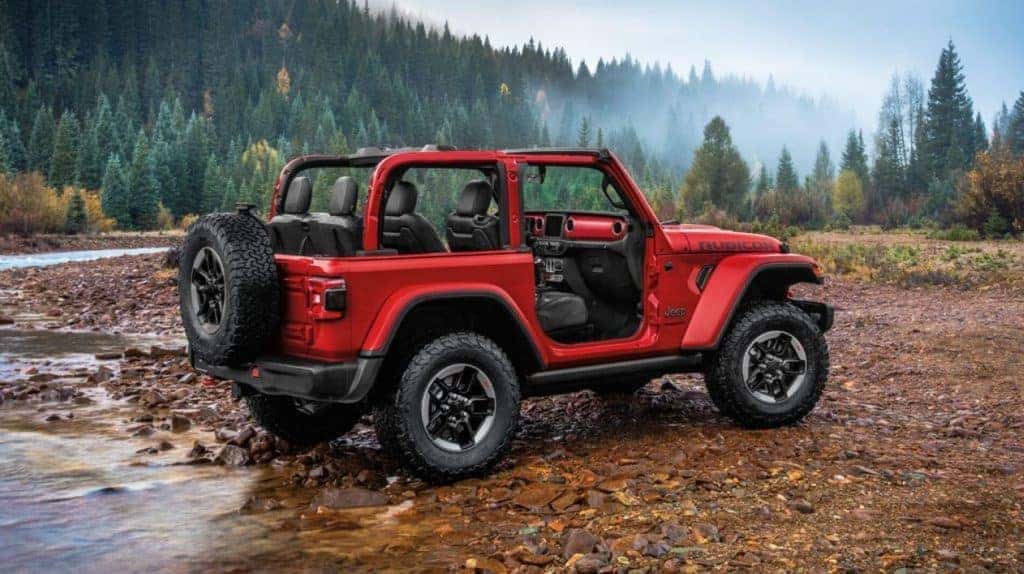Jeep Wranglers are not known for being good on gas due to their large size and off-road capabilities. However, their fuel efficiency can vary depending on factors such as engine type, driving habits, and road conditions.
These factors can impact the overall gas mileage of a Jeep Wrangler. While Wranglers may not be the most fuel-efficient vehicles, they are designed for off-road adventures and rugged terrain, prioritizing power and performance over fuel economy. Despite their lower gas mileage, Jeep Wranglers are popular for their distinctive style, versatility, and ability to tackle challenging off-road environments.
Fuel Efficiency Of Jeep Wranglers
Discovering the fuel efficiency of Jeep Wranglers sheds light on whether these rugged vehicles are good on gas.
Engine Options
Jeep Wranglers offer a range of engine options, from the efficient 4-cylinder to the powerful V6.
Fuel Consumption Comparison
- 4-Cylinder Engine: Provides better fuel efficiency for city driving.
- V6 Engine: Offers more power but lower fuel economy than the 4-cylinder.
When considering a Jeep Wrangler, it’s crucial to weigh the engine choice against your fuel efficiency needs.

Credit: www.burgerchryslerjeep.net
Factors Affecting Fuel Economy
Fuel economy is an important consideration for many Jeep Wrangler owners. While Jeep vehicles are renowned for their off-road capabilities and ruggedness, their fuel efficiency is often a point of concern. However, several factors come into play when determining the fuel economy of a Jeep Wrangler. By understanding these variables, drivers can make informed decisions about their driving habits and aftermarket modifications to optimize their fuel efficiency.
1. Driving Habits
Driving habits play a significant role in the fuel economy of any vehicle, including the Jeep Wrangler. Here are a few driving habits that can impact your Jeep’s gas mileage:
- Avoiding aggressive acceleration and abrupt braking can help conserve fuel.
- Maintaining a steady speed and avoiding unnecessary idling can also contribute to better fuel efficiency.
- Driving at higher speeds or constant stop-and-go traffic can considerably decrease your Wrangler’s gas mileage.
2. Aftermarket Modifications
Aftermarket modifications can enhance the performance and appearance of your Jeep Wrangler, but they can also influence fuel economy:
- Installing larger tires can alter the gear ratio, causing the engine to work harder and increasing fuel consumption.
- Additions such as roof racks, winches, and lift kits increase the vehicle’s weight and air resistance, resulting in reduced fuel efficiency.
- Upgrading the exhaust system or adding a cold air intake may improve engine performance, but it could impact fuel economy negatively.
Considering the impact of these aftermarket modifications is important to strike a balance between improving performance and preserving fuel efficiency.
By understanding how driving habits and aftermarket modifications can affect the fuel economy of a Jeep Wrangler, drivers can make informed choices to optimize their gas mileage. By adopting good driving practices and carefully considering the modifications they choose to apply, Jeep Wrangler owners can strike a balance between performance and fuel efficiency.
Also Read: Are Jeep Cherokees Good on Gas

Credit: www.cars.com
Tips For Improving Fuel Efficiency
For those considering the gas mileage of Jeep Wranglers, there are tips for boosting fuel efficiency. Simple measures like keeping tires properly inflated, driving smoothly, and maintaining a steady speed can help improve gas mileage.
Additionally, removing excess weight from the vehicle and using the recommended grade of motor oil can further enhance fuel efficiency.
Improving fuel efficiency is a concern for many Jeep Wrangler owners. While these off-road vehicles offer adventure and ruggedness, they are not known for their stellar gas mileage. However, there are several measures you can take to improve the fuel efficiency of your Jeep Wrangler.
1. Proper Tire Maintenance
Maintaining the proper tire pressure can significantly impact the fuel efficiency of your Jeep Wrangler. Underinflated tires create drag, which forces the engine to work harder and use more fuel. Likewise, overinflated tires can result in reduced traction and uneven wear.
To optimize fuel efficiency, make sure to check your tire pressure regularly and keep it at the recommended level provided in your owner’s manual.
Additionally, ensure that your tires are properly aligned and balanced to minimize rolling resistance and maximize fuel economy.
2. Use Of Aerodynamic Accessories
Aerodynamic accessories can help reduce wind resistance and improve fuel efficiency for your Jeep Wrangler. Installing a wind deflector or a roof rack fairing can smoothen the airflow around your vehicle, reducing drag and enhancing fuel economy.
Another effective accessory is a tonneau cover, which covers the bed of your Jeep and prevents turbulence caused by open gaps. By investing in these aerodynamic accessories, you can make a noticeable difference in your Jeep Wrangler’s gas mileage.
Additionally, being mindful of your driving habits can also contribute to better fuel efficiency. Avoid aggressive acceleration and deceleration, as these rapid speed changes require more fuel.
Try to maintain a constant speed and use cruise control whenever possible, especially during long highway drives. By adopting a smooth driving style, you can optimize fuel efficiency and ensure a longer-lasting journey with your Jeep Wrangler.
Also Read: Are Jeep Grand Cherokees Good on Gas
Eco-friendly Upgrades For Jeep Wranglers
Upgrading your Jeep Wrangler with Eco-Friendly options not only benefits the environment but also enhances its overall performance. Discover Electric and Hybrid Conversion Kits and Biofuel and Ethanol alternatives below.
1. Electric And Hybrid Conversion Kits
Convert your Jeep Wrangler to an Electric or Hybrid vehicle with kits that reduce emissions and increase fuel efficiency.
2. Biofuel And Ethanol Options
Explore the benefits of using Biofuel and Ethanol in your Jeep Wrangler, reducing your carbon footprint while still delivering power.
Future Of Fuel Efficiency In Jeep Wranglers
Explore the Jeep Wranglers’ evolving fuel efficiency technology, promising a greener future for these rugged vehicles. Discover how Jeep Wranglers are navigating the shift towards better gas mileage without compromising their off-road prowess. Will these advancements make Jeep Wranglers an even more appealing choice for eco-conscious adventurers?
The future of fuel efficiency in Jeep Wranglers is an exciting and rapidly evolving topic in the automotive industry. As technological advancements continue to be made and potential regulatory changes loom, the landscape of fuel efficiency in these rugged vehicles is poised for significant transformation.
1. Advancements In Technology
Technological innovations are paving the way for improved fuel efficiency in Jeep Wranglers. Lightweight materials and aerodynamic designs are being incorporated to enhance overall efficiency without compromising the vehicle’s off-road capabilities.
Additionally, the integration of hybrid and electric powertrains is on the horizon, offering the promise of reduced fuel consumption and lower emissions without sacrificing the Wrangler’s iconic performance.
Also Read: Are Jeep Commanders Good on Gas
2. Potential Regulatory Changes
Potential regulatory changes, including stricter fuel economy standards and emissions regulations, are driving the automotive industry to prioritize enhancements in fuel efficiency. Faced with the need to comply with evolving environmental mandates,
Jeep and other manufacturers are compelled to explore alternative fuel options and innovative engine technologies to ensure their vehicles meet future regulatory requirements.
In the face of mounting pressure to reduce their carbon footprint, the future of fuel efficiency in Jeep Wranglers holds the promise of exciting advancements and eco-friendly solutions. The evolution of technology and the drive for compliance with stricter regulations are shaping a future where Wranglers offer both stellar performance and improved fuel economy.

Credit: www.kendalldodgechryslerjeepram.com
Wrapping Up
In sum, Jeep Wranglers may not be the most fuel-efficient, but their off-road prowess compensates. So, if you prioritize adventure over fuel economy, a Wrangler is worth considering in your vehicle choices. Keep exploring, stay informed, and make a decision that aligns with your lifestyle and priorities!
FAQs
Are Jeep Wranglers gas guzzlers?
Traditionally, Jeep Wranglers haven’t been known for their exceptional fuel economy. However, newer models have seen significant improvements, and there are some fuel-efficient options depending on the engine choice.
What kind of gas mileage can I expect from a Jeep Wrangler?
Fuel economy varies based on the Wrangler’s engine, model year, and driving conditions. Here’s a general idea:
- Base V6 Engine: Around 17-20 mpg city, 20-25 mpg highway
- Turbocharged 4-cylinder: Up to 22 mpg city, 29 mpg highway
- EcoDiesel engine: Best fuel economy at 22 mpg city, 29 mpg highway.
- Wrangler 4xe (Plug-in Hybrid): Offers an impressive 49 MPGe
Which Jeep Wrangler model is the most fuel-efficient?
The Jeep Wrangler 4xe plug-in hybrid takes the crown for the most fuel-efficient Wrangler. Its combination of a gasoline engine and electric motor offers the best mileage
Are there ways to improve my Jeep Wrangler’s gas mileage?
Yes! Here are some tips:
- Adopt good driving habits: Avoid hard accelerations and rapid braking.
- Maintain proper tire pressure: Under-inflated tires decrease fuel efficiency.
- Remove excess weight: Extra gear adds load, making your engine work harder.
- Keep up with maintenance: A well-tuned engine runs more efficiently.
Is a Jeep Wrangler’s fuel efficiency a dealbreaker?
That depends on your priorities. If fuel costs are your top concern, there are more fuel-efficient SUV options on the market. Wranglers are prized for their off-road capabilities and iconic style, so if those aspects outweigh fuel efficiency for you, a Wrangler could still be a great choice.

